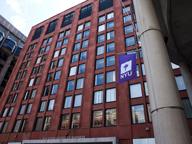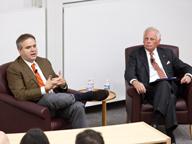Faculty News
—
Prof. Prasanna Tambe explains why employers favor graduates from universities over technology bootcamps
—

Excerpt from WIRED -- "Coding education has taken off in recent years, driven by reports that the demand for quality programmers in America is drastically outpacing the supply. So everyone from the White House to Google has jumped on the coding bandwagon. Meanwhile, bootcamps have sprung up across the country. But the challenge is there’s no way for employers to know that the so-called graduates of these programs are any good. 'They’re new. They don’t have track records, so it’s hard to look at a person who’s graduating and evaluate and screen them,' says Prasanna Tambe, an NYU professor specializing in IT work force."
Faculty News
—

Excerpt from WIRED -- "Coding education has taken off in recent years, driven by reports that the demand for quality programmers in America is drastically outpacing the supply. So everyone from the White House to Google has jumped on the coding bandwagon. Meanwhile, bootcamps have sprung up across the country. But the challenge is there’s no way for employers to know that the so-called graduates of these programs are any good. 'They’re new. They don’t have track records, so it’s hard to look at a person who’s graduating and evaluate and screen them,' says Prasanna Tambe, an NYU professor specializing in IT work force."





















